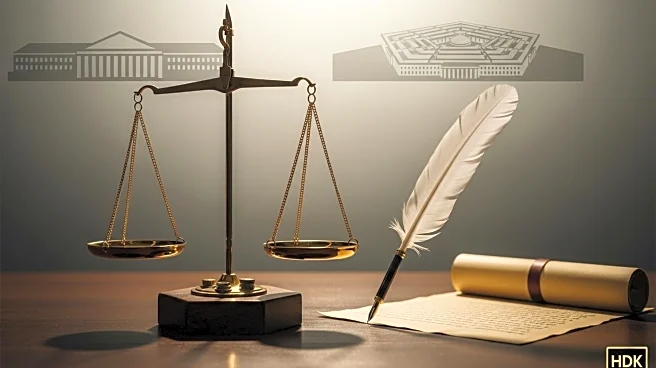What is the story about?
What's Happening?
The Pentagon has announced new restrictions on press access, requiring journalists to sign a 17-page agreement to maintain their accreditation. This agreement imposes limits on news-gathering activities and mandates that information must be approved for public release by an authorizing official, even if unclassified. Defense Secretary Pete Hegseth described the changes as common sense, emphasizing that the press does not run the Pentagon. The new policy has raised concerns among journalists and organizations like the Reporters Committee for Freedom of the Press, who argue that it violates First Amendment rights and limits public access to information about military operations.
Why It's Important?
The new restrictions could significantly impact the transparency of military operations and the ability of journalists to report on defense and national security matters. By limiting access to information, the Pentagon may reduce public oversight and accountability, potentially affecting public trust in military operations. The policy could also set a precedent for other government agencies, influencing how they interact with the press. The changes may lead to increased scrutiny and criticism from media organizations and civil rights groups, who view the policy as a threat to press freedom.
What's Next?
Journalists and media organizations are likely to challenge the new policy, seeking clarification and potentially legal action to protect their rights. The Pentagon may face pressure to revise or rescind the restrictions, especially if public and political opposition grows. The situation could lead to broader discussions about press freedom and government transparency, with potential implications for future policies affecting media access to government information.
Beyond the Headlines
The restrictions highlight ongoing tensions between government agencies and the press, reflecting broader debates about the balance between national security and freedom of information. The policy may influence how other countries view U.S. commitments to press freedom, affecting international perceptions of American democratic values. The situation underscores the importance of maintaining a free press as a check on government power, particularly in matters of national security.

















